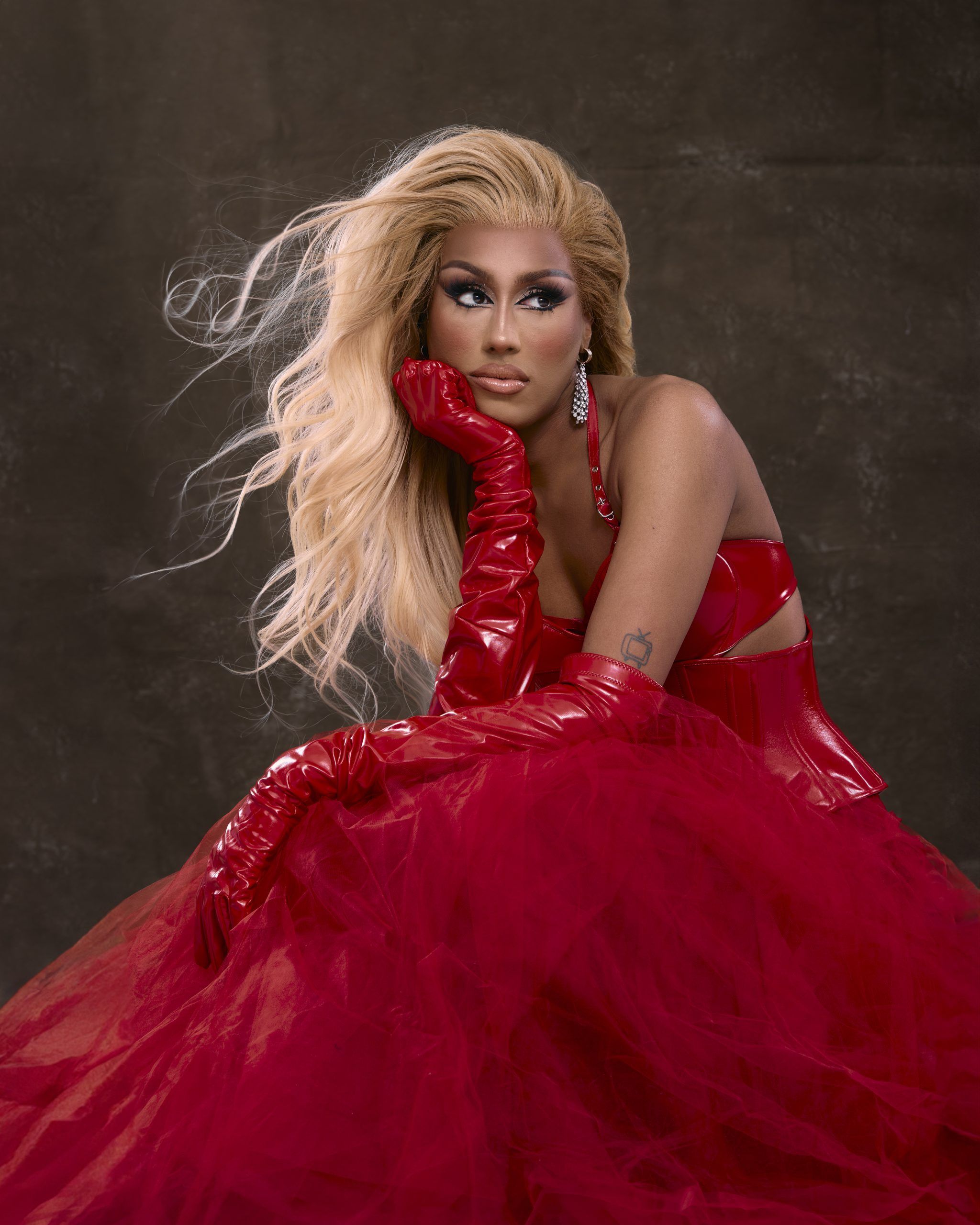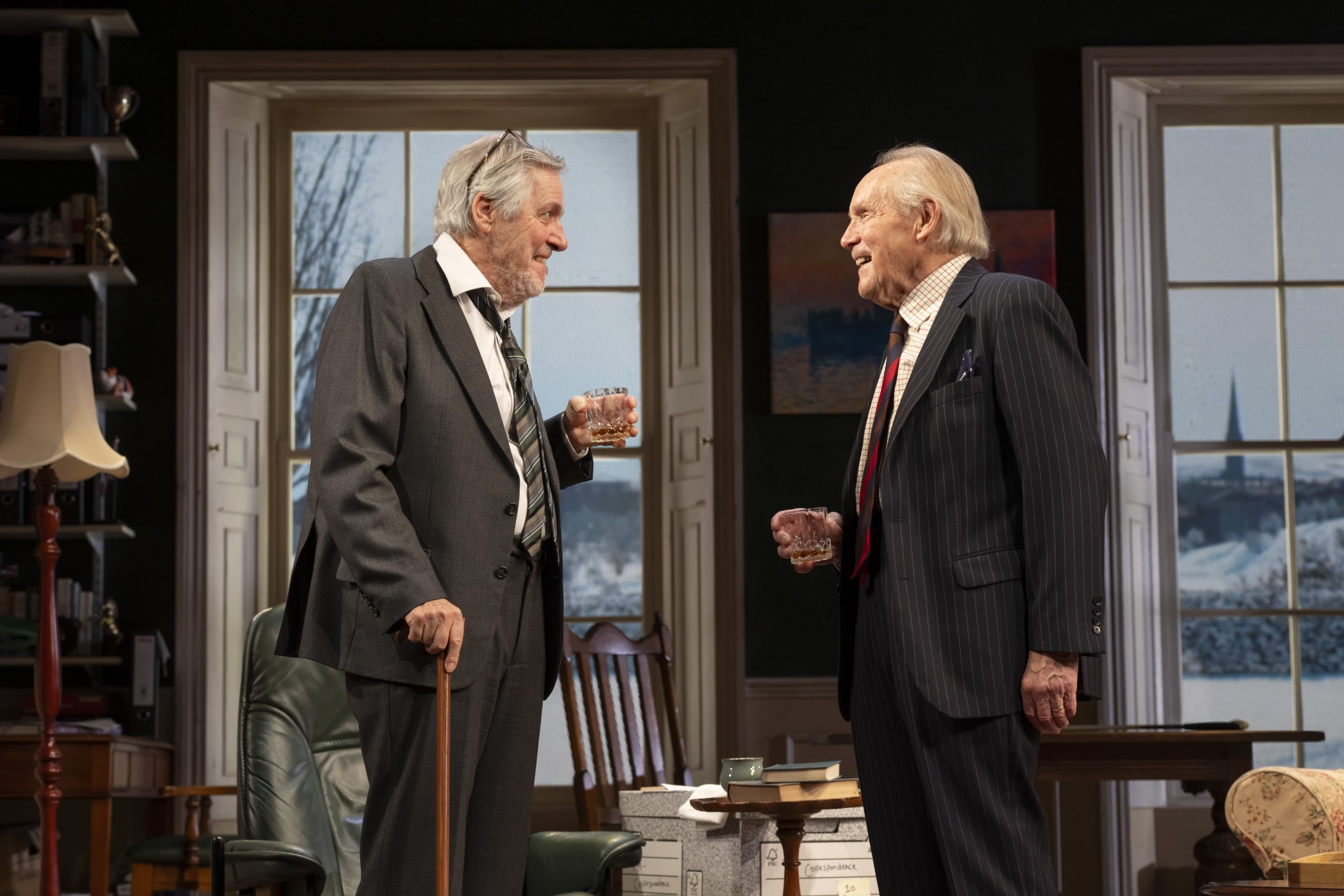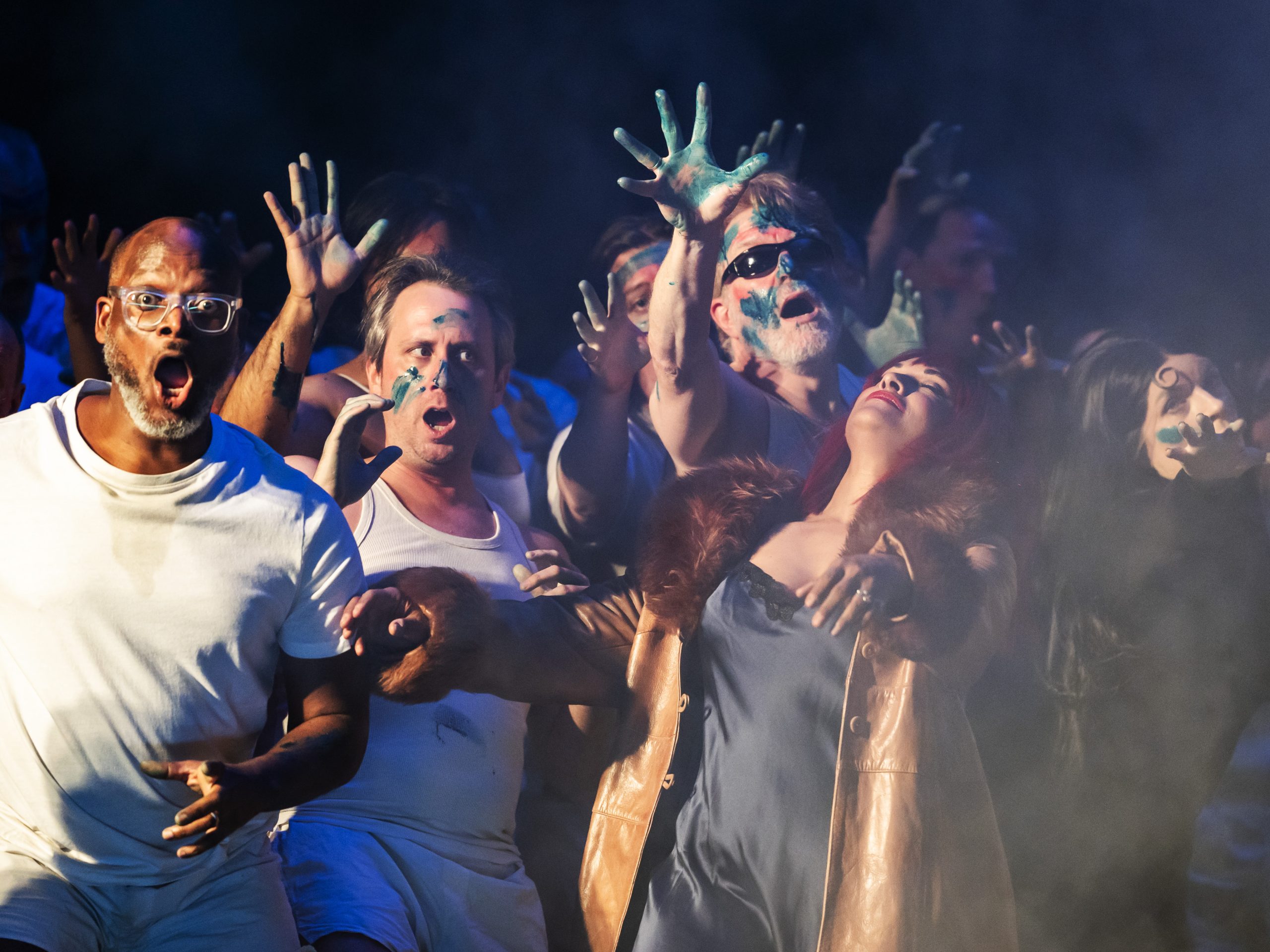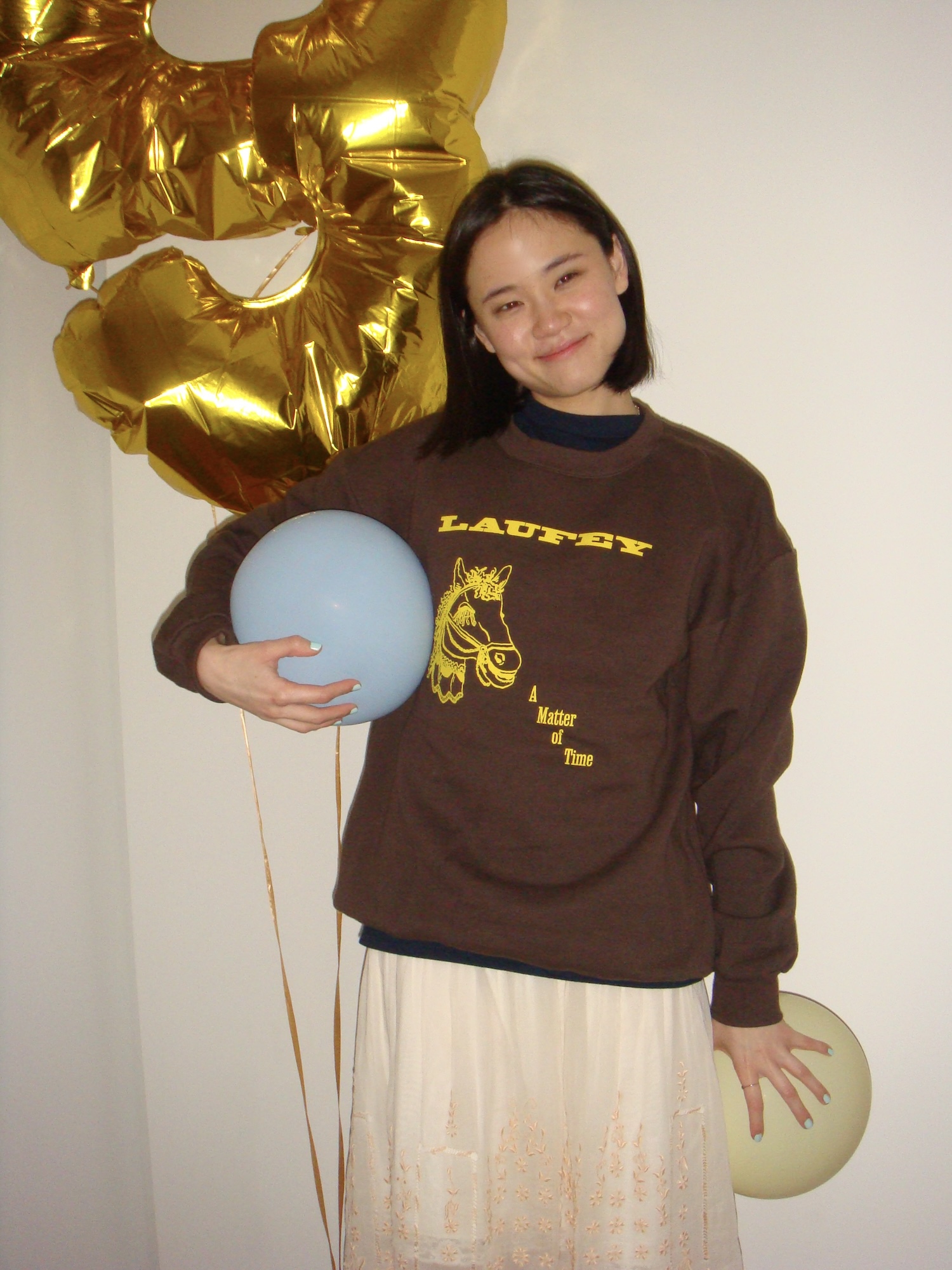Priyanka is a pop star, drag royalty, and now playing the People’s Princess. Since winning Canada’s Drag Race in 2020, she’s released a full-length album, toured internationally, and made a name for herself as a bold, fearless performer with something to say. Now she’s bringing all that and more to the West End in The Diana Mixtape, a new drag musical tribute to the late Princess of Wales. I sat down with her to talk music, mayhem, and stepping into the heels of a global icon.
So, what brings a Canadian Drag Race superstar to a British stage musical about Princess Diana?
I toured the UK in January and the fans here were just different, so into my music. Not just the Drag Race stuff, the actual songs. We sold out the Moth Club, which was wild. After that, I thought, go where you’re loved. I wanted to spend more time here, maybe live here, write more, build something.
Then I took a little break, and suddenly it was like, ‘The Diana Mixtape is happening – do you want to be Diana?’ I was like… wait, what? And it all just clicked. This was the way in.
Now I’m singing pop songs every night, rehearsing during the day, and writing music in between. It’s everything I wanted, like I manifested it. It already feels like a second home. I’ve been here a week, I thought I’d have a British accent by now!
Oh sure, it usually takes at least two.
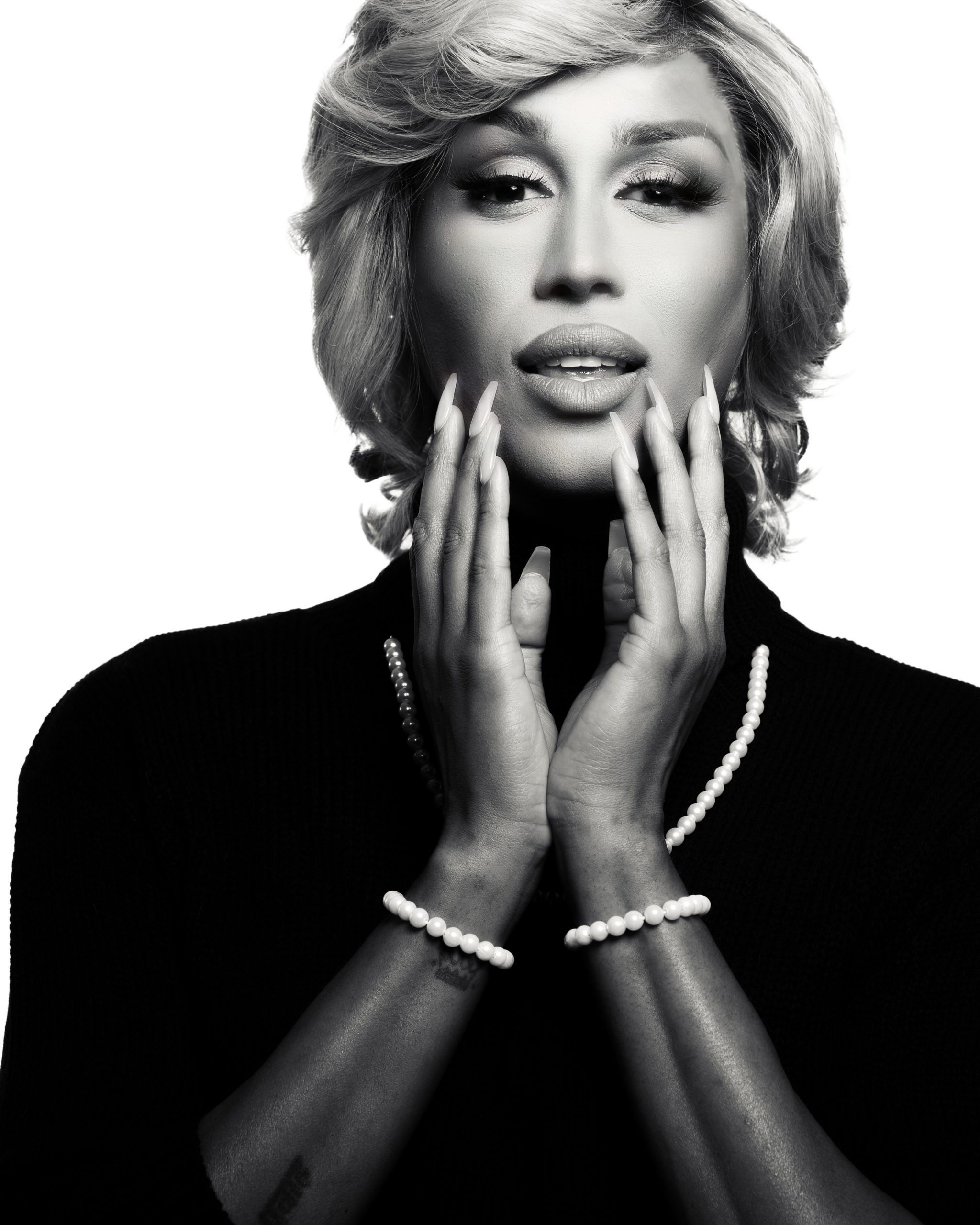
How’s your Princess Diana when you’re performing in the show? Are you doing the accent?
Yeah. So we start in our normal voices – like, ‘Hello everyone and welcome’ – but halfway through, it kind of softens into something very British. It just morphs.
It’s so soft, I feel like I’m barely speaking. And in rehearsal, everyone’s like, ‘What are you saying?’ And I’m like, ‘Diana’s soft spoken! And we have microphones!’ Some of the lines are just so hard to say in an accent, it’s confusing.
I was never the kid in school doing impressions or silly voices. I was scared of standing out. I didn’t know where I fit in. So now, being asked to do accents and choreography and all these musical theatre things, I’m like, what the fuck?
The good news is, I can pull it off. We’ve learned something like 23 numbers in a week. My brain is screaming.
But it’s so cool. We’re really paying homage to iconic Diana moments. I get to wear the blue engagement suit while Charles does that weird monologue about her being 16, and then I sing Paparazzi. It’s all so fucking cool. I’m obsessed.
Was Diana someone you already felt connected to, or has the show opened up a whole new side of her for you?
I didn’t get it at the time – I was a kid in Canada – but now I do. She wasn’t just iconic by accident. She wanted to be the people’s princess, and she made it happen. That’s what makes her so cool – she knew exactly who she wanted to be, and she became it.
You’re all playing Diana, I understand. Can you tell me a bit about your version – without giving too much away?
Yeah, so there are five of us playing Diana: me, Kitty Scott-Claus, Divina De Campo, Courtney Act, and Rosé. And obviously, we’re all completely different. That’s part of the joke, really. At first, people might think, is this going to be disrespectful? But the second the curtain rises and you see five Dianas in matching wigs, all around six feet tall and totally different shapes and sizes, you get it. It’s a celebration.
Everything is heightened. When we’re running from paparazzi, it’s super dramatic. When Charles starts speaking, we’re rolling our eyes, big eye-rolls. We’re not just playing Diana, we’re channelling the audience’s reaction as Diana. If something feels creepy or weird or funny, we lean into it and amp it up.
It’s totally ridiculous in the best way. And we all play her so differently. Seeing five very different Dianas running around in identical outfits is genuinely surreal. But it works. Somehow, it really works.
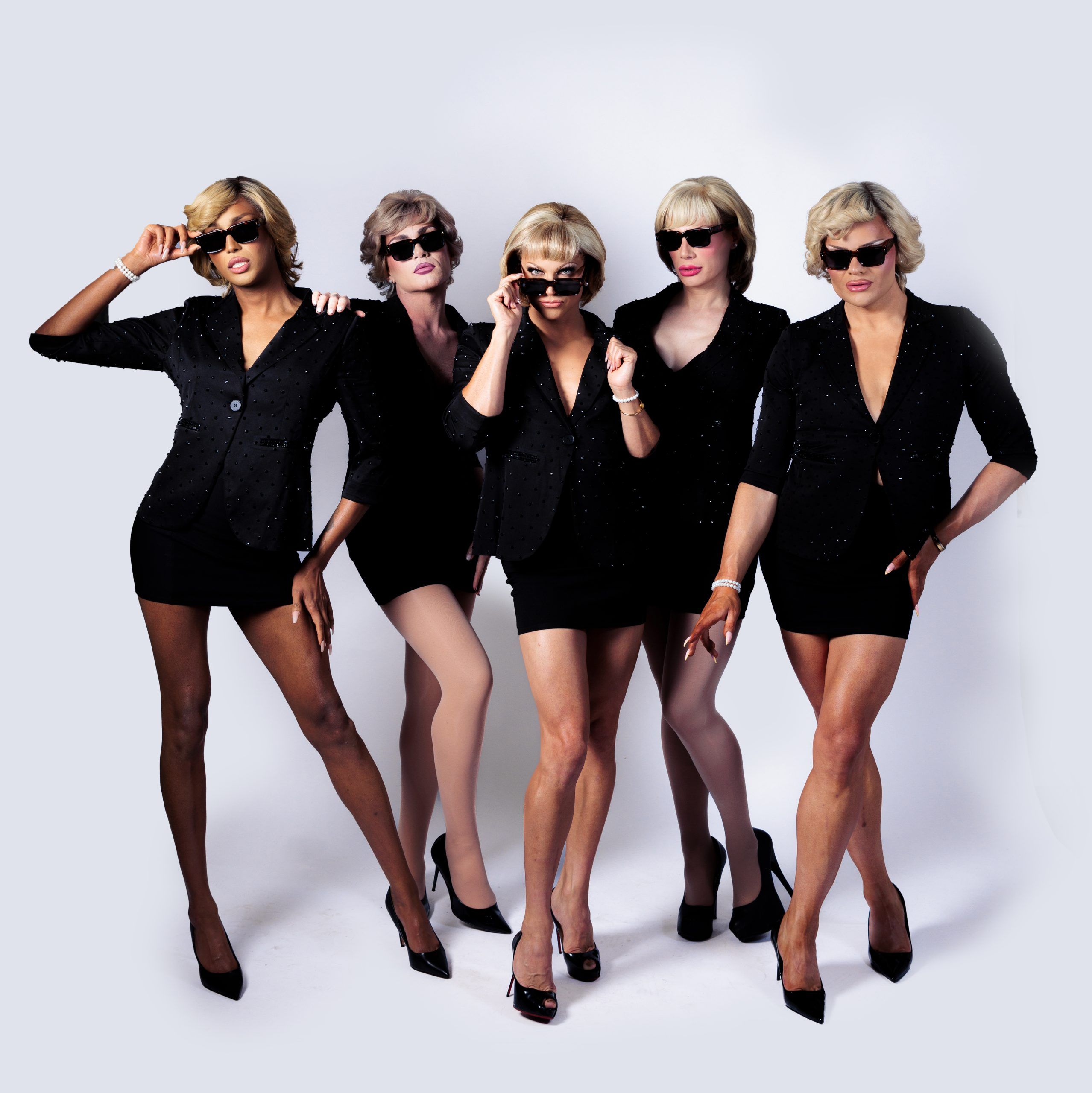
Are you playing a Priyanka version of Diana – or doing something completely different?
It’s a lot more character work than I expected. I thought it would be more like, ‘I’m Priyanka playing Diana,’ but once we hit the engagement, the revenge dress, James Hewitt – it shifts.
That’s when it becomes full British Diana: shy, soft-spoken, totally in character. You only really see our drag personas at the start – maybe the first number – and then we are Diana.
It’s so cool. Drag’s been dominated by Drag Race, but now you’ve got queens acting on a West End stage. We’re not just drag artists – we’re actors, singers, dancers. It feels like a level up. Like, we’re here, and we can do this too. We’re carving out space for ourselves.
When you walked into the Drag Race werkroom, did you think ‘I could win this’ – or was it more like ‘don’t fall over’?
A bit of both. When you’re stepping onto such a big platform, my mindset is always: use the stage. Whatever that means to you – use it. Even back in my kids’ TV days, hosting or warming up the crowd, I always thought, if you’ve got a stage, make it count.
So, walking into Drag Race, it felt like: reintroduce yourself. Your drag audience is about to grow. It was a way to leave kids’ TV behind but stay on screen, stay performing. I didn’t feel like I was competing – I felt like I was becoming.
You get a taste of fame before it hits: being judged, overthinking, getting past it. It’s like training for what’s coming while also creating what’s coming.
And when I look at the challenges I won – the girl group, the makeover, the finale – they were all about joy and performance. That’s the heart of what I do. Shine where you shine. Be the best you.
What do you remember most vividly from the Drag Race whirlwind?
Performing You Wear It Well. I remember a producer pulling me aside like, ‘Is this really about wearing it well?’ And I had that moment of, do I second-guess myself, or do I trust my instincts? I decided to own it. I wrote what I wrote. And to this day, people still tag me saying it’s one of the best rap verses.
Those moments really test you – are you gonna just do whatever else is doing, or are you gonna be a trailblazer?
The music challenges were always my favourite – I Drove All Night, the girl group number, the final lip sync. Any time I could sing, dance, and perform, I felt most alive.
And the friendships. Tynomi and I laughed so much. Lemon and I got really close. It was such a wild, beautiful, queer experience – and look what it’s led to!
Was there a turning point where something just clicked and you thought, I might actually win this?
After I Drove All Night. That lip sync changed everything.
Before Drag Race, I was just a performer. You go to the bar, do your number, crack a few jokes, then you’re out. On the show, you’re out of drag 97% of the time. Only a tiny fraction is spent doing what you normally do.
So, when I finally got to lip sync, I felt like, OK – they’ve seen what I can actually do now. I’m good. I’ve got this.
But also, even if I didn’t win – what I did in that performance, that would keep me booked for life. I knew I’d be fine either way.
Did anything surprise you about how people responded to you, especially back home or in South Asian, Guyanese, and Caribbean communities?
Yeah, I was genuinely surprised – in the best way. There are people who say, ‘You’re it for me. I love everything you do.’ It’s wild.
Because our season aired during the height of the pandemic, it just blew up. The love was overwhelming. And the best part? They became fans because I was doing what I love most. Not some version of myself – just me.
Early on, it was me, Lemon, and Jimbo with the biggest followings. And I remember thinking, this is huge – the narrative isn’t ‘the brown girl can’t win’. They liked me, and that meant everything.
Visiting Guyana and India after winning, the support was incredible. People said, ‘You’re the blueprint.’ And that’s the goal – to carve more space, make it easier for the next person.
When I won, a lot of people saw themselves in me. It wasn’t just about me – it felt shared, for the people.
The people’s Princess – isn’t that funny?
Ha! I see what you did there.
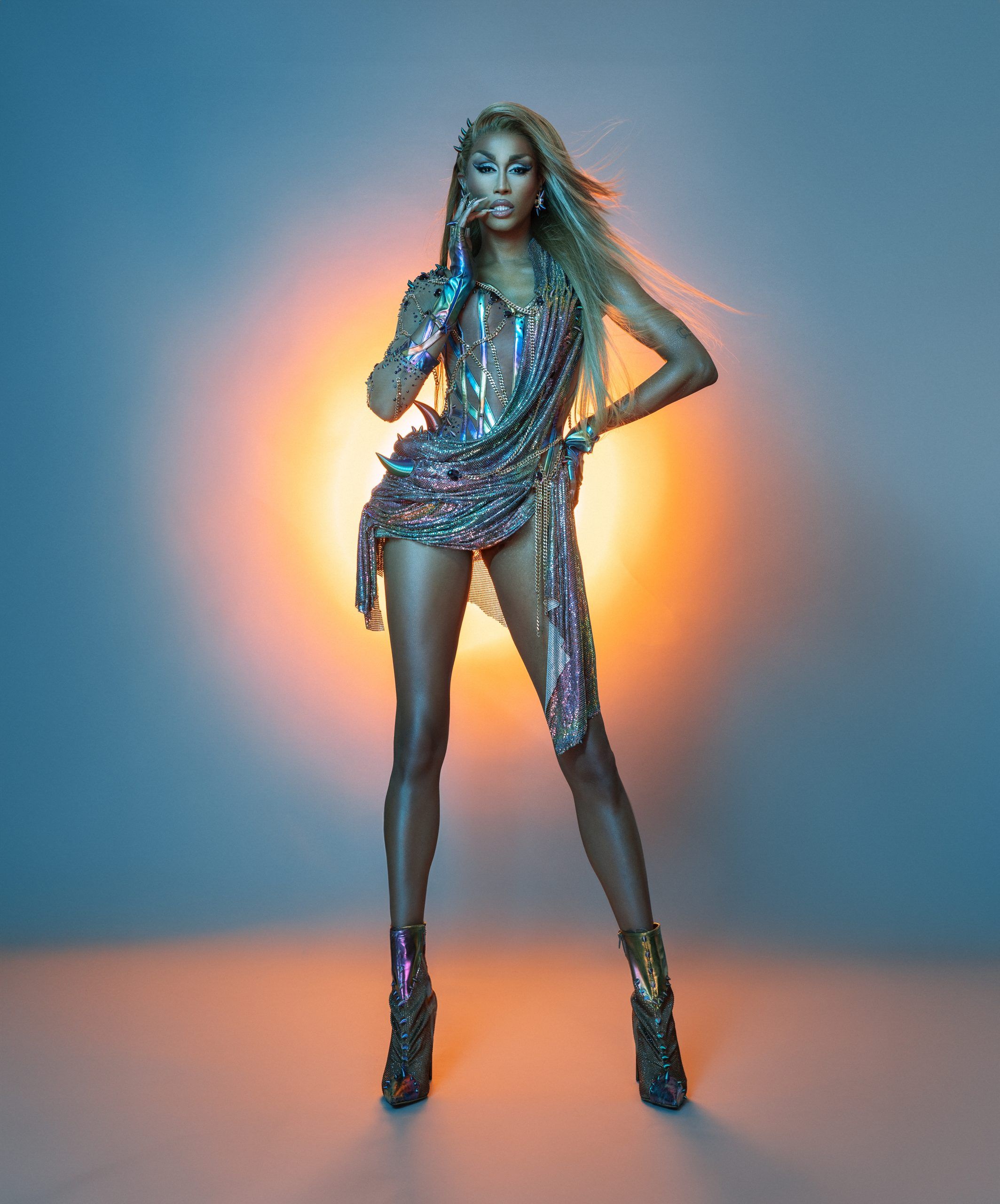
You came out to your dad on Canada’s Drag Race. What was it like sharing that moment so publicly?
Once I’ve processed something, I like to share it – especially stories like that, because they’re so common. For a lot of West Indian or immigrant families, it’s: “I told my mum, but don’t tell dad.”
Drag Race gave me the freedom to be fully myself, and my family had to reckon with that. Everyone else was accepting me, so there wasn’t room for doubt.
It took five years for my dad to come see me do drag – partly because I never asked, partly because he never did. But now he’s fully come around. I had to be patient with him, just like he was with me.
Do you still hear from people who really connected with your story, especially from South Asian or Guyanese communities?
All the time. People message me after seeing me on We’re Here, or Drag Can Save My Life, or hearing one of my songs. Then they do a deep dive and reach out.
The messages are beautiful. It’s often: “I saw this and now I feel like I can do it too.” That can mean so many things – going back to school, chasing a dream job, healing a relationship with their parents.
That’s why I do this. Everything in my music, even coming to the West End, it’s all about leaving people inspired. Especially those who see themselves in me.
Because it’s possible. Literally – look at me. It’s possible.
It truly is.
Do you have a really meaningful fan story – someone who saw themselves in you?
Oh my God, yes. On tour last winter, I met so many amazing fans, some who’d even grown up watching me on the kids’ channel.
One night in Kamloops, there was a woman who wasn’t at the meet-and-greet, but during the show I went out into the crowd and handed her the mic. I asked if she wanted to say anything, and she said:
“Priyanka, I love you. Thank you for carving out space for brown people. You make me proud to be Canadian.”
That floored me. When you grow up feeling different – queer, brown, whatever – you don’t always feel like you fully belong. But for someone to say, because of you, I’m proud to be Canadian? That’s wild. That’s everything.
That’s gorgeous. I’m moved just hearing you describe it.
You’ve spoken up on drag bans and queer rights in Guyana and the Caribbean. Do you think real change is possible in a system built to erase queerness – or is the fight just about refusing to disappear?
The fight is about refusing to disappear. Everything comes in cycles. Drag was hot, then mainstream, then backlash, then back again. It’s the same with politics and culture. I mean, even Ed Sheeran just dropped a track with a Bollywood vibe. And I thought, hang on – I remember when everything on the radio had that influence. Come and Get It, Buttons, Get Ur Freak On. It’s all a cycle.
So in the so-called bad times, it’s even more important to stay loud – to keep showing up, celebrating Pride, supporting your queer friends and spaces. It’s easier to disappear, but we can’t.
And I’m not going anywhere. They can try all they want, but I’ll still be here releasing music, doing what I do.
What do you wish people outside the drag world better understood about the power of drag?
Drag is powerful because it’s courageous. We’re told not to dress up, not to be loud, not to stand out – and drag queens do all of that on purpose. That kind of boldness inspires people. It makes them feel brave too.
People forget that drag artists are like your favourite rock stars or influencers. We’re at the forefront of change. We shape culture. And it’s hard work – hours of transformation, performing every night, making people feel something. That’s art. That’s power.
So instead of hating it, try enjoying it. There’s so much to love!
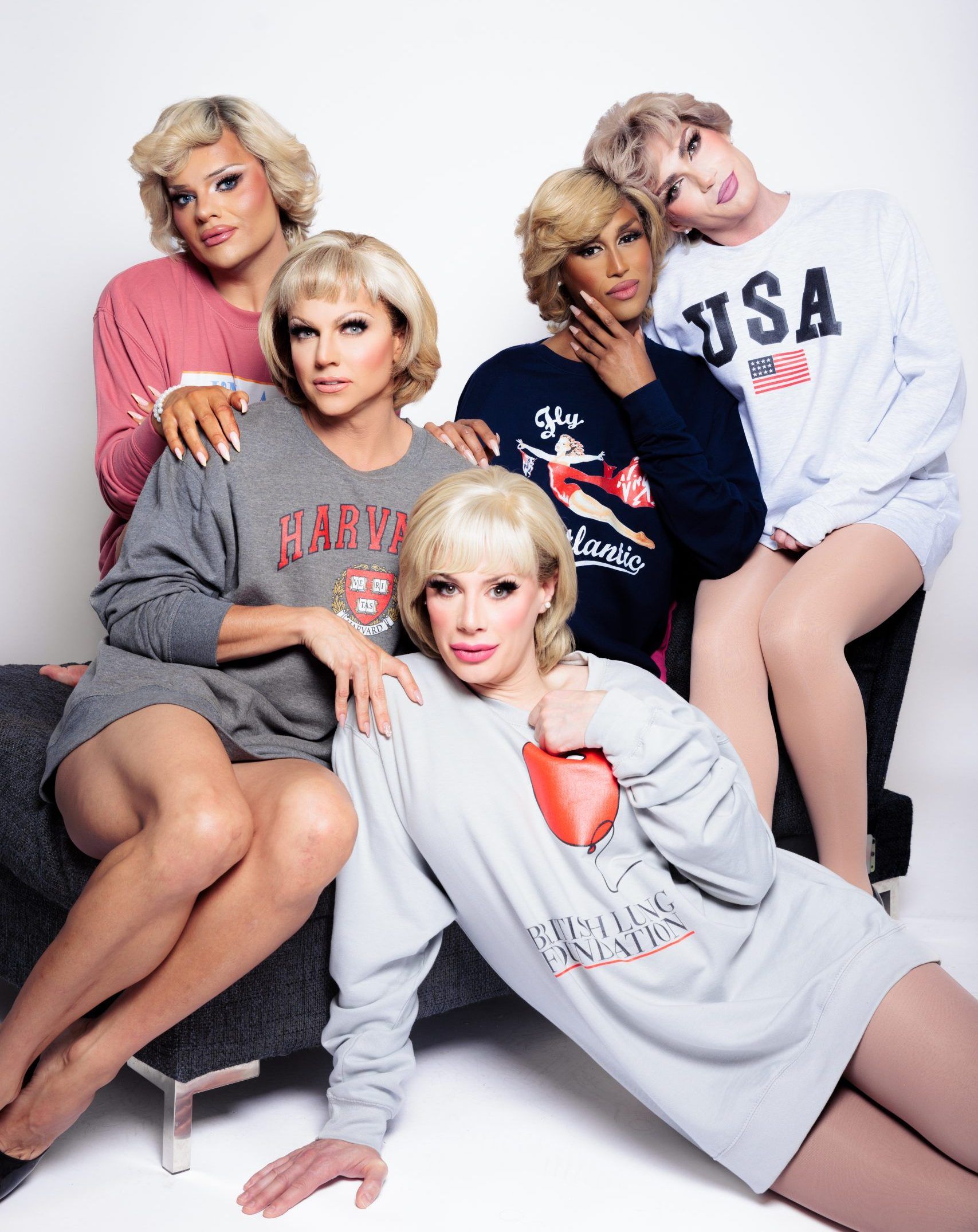
Let’s talk about your music. You started out with a few singles, but now you’ve got a full album out and you’re properly established as an artist. What made you want to take that side of your career further?
It wasn’t really a shift – I’d been writing songs for years, even during my YTV days. I had Who Wants a T-Shirt?, I wrote weekly SpongeBob tracks, and released two singles before Drag Race.
Then on Drag Race, I won all the music challenges. So when it ended, putting out an EP felt natural. Music gave me somewhere to channel everything – the pressure, the growth, the relationships.
I’m a storyteller. Music’s just another way to do that. And doing it in drag? That’s the dream.
Who are some of your biggest musical inspirations? And is there anyone on your dream collaboration list?
I listen to a lot of Ayra Starr – she’s Nigerian and her music is incredible. I also go back to Billie Eilish’s first album a lot. I love how she plays with Afrobeat and a little bit of dancehall. It doesn’t sound like that on the surface because it’s Billie, but when you listen closely, it’s there – it’s a really interesting blend.
My dad was a DJ, so the music I grew up with is a big part of my inspiration too – soca, dancehall, chutney, Bollywood. We still have all the vinyls in the basement. That whole soundscape is part of who I am.
As for dream collabs, I’d love to work with Maybe No$, a Canadian rapper who’s one of the most innovative artists I’ve seen online. Pablo Vittar is another one – she’s a Brazilian drag queen and just iconic. She paved the way for doing music in drag without coming from Drag Race. And then if we’re talking dream-dreams? Lisa from BLACKPINK.
What kind of message do you hope your music leaves behind? When people say ‘Oh my God, Priyanka’s music’ – what do you want that to mean?
That they felt something. That they heard my story. Especially now – the new stuff I’m writing feels so personal and true to me. I want people to feel empowered, inspired, and like they’ve got someone on their side. Life can be rough, but the way we bounce back is beautiful. Humans are resilient.
You were working on The Zone by day and doing drag by night – hence the nickname ‘Canada’s Hannah Montana’. How do you feel about that?
I love it – because it was true. I was hiding it from the kids’ TV audience, then living this full-on pop star fantasy at night, and back at work the next morning. Total double life.
Was it strange balancing kids’ TV by day and drag by night?
Totally. And now I look back and think, how did I even do that? Drag lit my soul on fire. I barely slept, but I was hooked. That kind of joy is rare.
And what made you finally say, that’s it, I’m going full-out with drag? Was it during Drag Race? Was it when you won?
It was when I got cast. At first, I told myself I’d go do the show and come back to kids’ TV – like, sneak away and quietly return. But once the cast announcement was coming, it was clear I had to go all in. They basically said, it’s probably best if you disappear now, and I was like, OK, sure. I wasn’t as strong-willed back then, but I knew I had to make a leap. My mum just said, follow your dreams. So I did. I quit.
Amazing mum!
You mentioned earlier that some of your YTV audience have now become Priyanka fans too. Has that happened a lot?
Oh yeah, loads – online and at shows. People come up and say, ‘You were my childhood’ or ‘We watched you all the time’. And now they’re at a Priyanka concert. That’s such a magical thing. Like, what kid gets to say, ‘I watched this guy on SpongeBob SquarePants, and now I’m watching them on Drag Race and they’re touring the world with their music’? It’s a wild trajectory.
And you’ve inspired so many young people and opened minds. That must feel amazing.
It’s really cool.
And what about acting? You’ve done a bit of scripted TV now – is that something you want to focus on more?
Not really. Music and performing live are still my main focus. The acting roles have come up every so often – Glamorous, Meet Me Next Christmas – and they’ve been so much fun. But it’s not something I’m actively chasing right now.
So more like, if the right thing comes along, you’re up for it?
Exactly. If it feels right, I’m in – let’s go.
You’ve done kids TV, drag, music, reality hosting – now you’re in the West End. Is there anything you haven’t done yet that’s still calling to you?
Honestly, I just want to keep learning. Whether it’s the music side – learning to mix, master, engineer – or in drag, like learning new hair techniques or how to sew. I love picking up new skills. The more you learn, the better you get. If you stop learning, you get stagnant. So for me, it’s about deepening what I already do, getting better within each world. That’s the next step.
Would you ever consider doing a biopic – The Story of Priyanka? And if so, who’s directing, and who’s playing you?
Oh, 100%. I’d write it myself. I think we’d need some up-and-comer to play me, probably starting in high school – that’s when the star power kicked in! I don’t know exactly who, but we’d do worldwide auditions. It’d be a whole thing – a big stunt.
Queues round the block?
Exactly! Just all little brown boys, trying to be me.
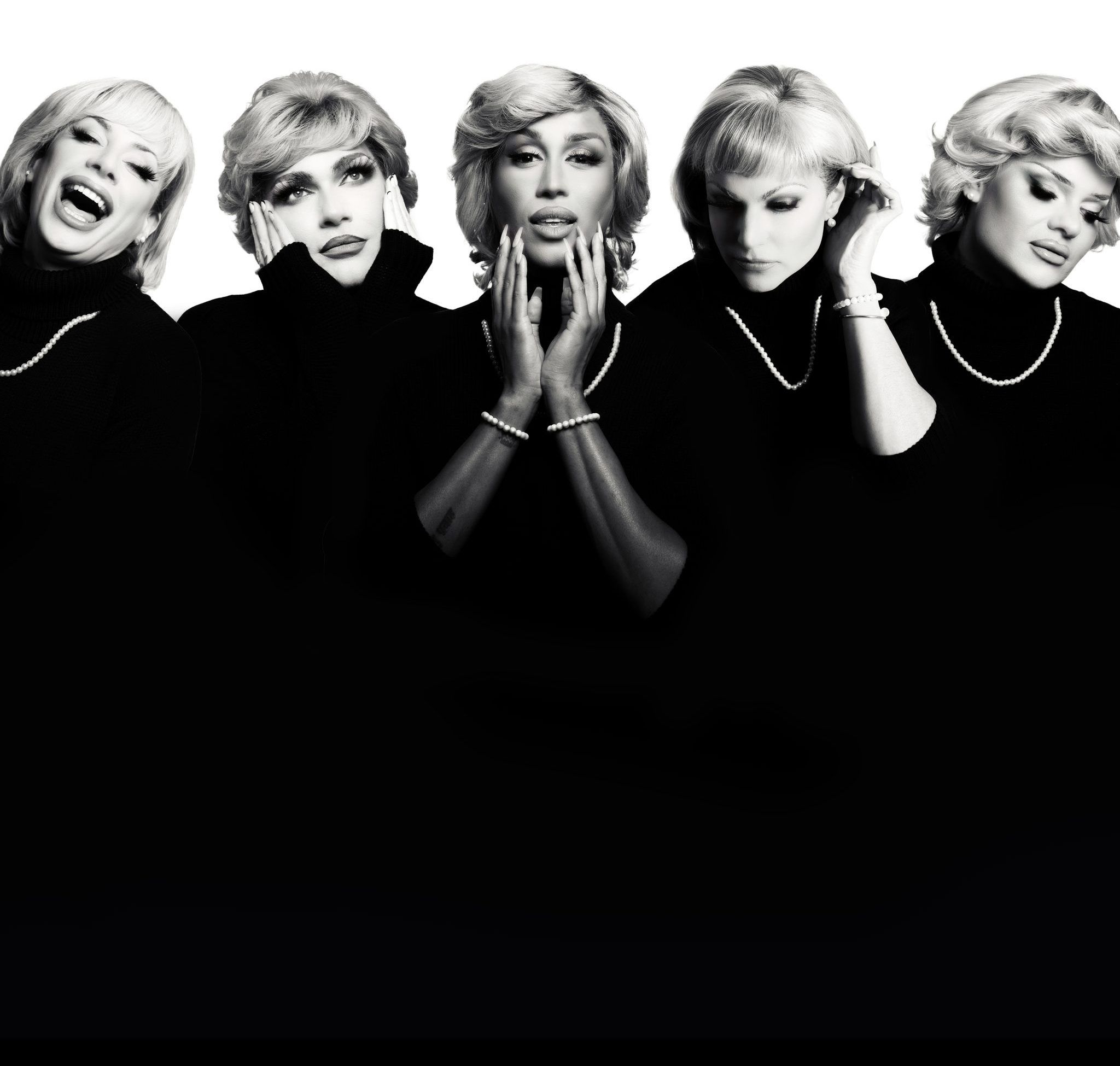
What moment still makes you stop and go, wait – I really did that?
Winning Drag Race. That moment still feels out-of-body. I replay it in my head all the time.
Being on HBO’s We’re Here, getting interviewed by MTV, Charlize Theron quoting me, Kirsten Dunst handing me a Critics Choice Award – total Hollywood magic.
Performing the Raptors NBA halftime show was wild. It felt like the Super Bowl. Kelly Rowland, Mary J. Blige, Ne-Yo and Mario were all watching me.
But honestly? It’s the studio moments. Hearing a track we’ve just written and thinking, how did we do that? That’s magic too. I love taking risks, breaking pop rules, trying new things.
Those are the moments where I feel like a leader – using my voice, pushing boundaries, not taking no for an answer.
And with that attitude, I’ve no doubt that this is only the beginning of an extraordinary career.
Catch Priyanka and her fellow queens in The Diana Mixtape at HERE At Outernet, London from July 29th to August 10th, and at The Lowry, Salford from August 19th to 21st.
Book your tickets now at thedianamixtape.com
To keep up on Priyanka’s news, follow her on Instagram, or check out her website at thequeenpriyanka.com
Words by Nick Barr
Production photography by Harry Elletson
Portraits by Fernando Cysneiros

